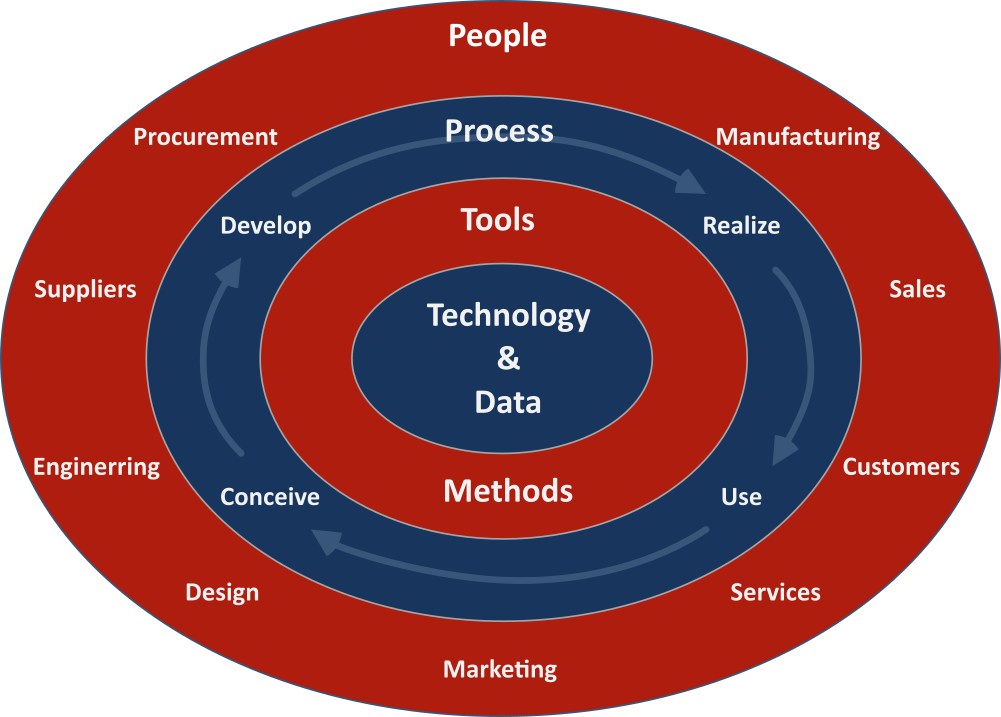What is PLM?
What is PLM?
In industry, product lifecycle management (PLM) is the process of managing the entire lifecycle of a product from inception, through engineering design and manufacture, to service and disposal of manufactured products. PLM integrates people, data, processes and business systems and provides a product information backbone for companies and their extended enterprise

Documented benefits include:
- Reduced time to market
- Increase full price sales
- Improved product quality and reliability
- Reduced prototyping costs
- More accurate and timely request for quote generation
- Ability to quickly identify potential sales opportunities and revenue contributions
- Savings through the re-use of original data
- A framework for product optimization
- Reduced waste
- Savings through the complete integration of engineering workflows
- Documentation that can assist in proving compliance for RoHS or Title 21 CFR Part 11
- Ability to provide contract manufacturers with access to a centralized product record
- Seasonal fluctuation management
- Improved forecasting to reduce material costs
- Maximize supply chain collaboration
Benefits
The goals of product life cycle management (PLM) are to reduce time to market, improve product quality, reduce prototyping costs, identify potential sales opportunities and revenue contributions, and reduce environmental impacts at end-of-life. To create successful new products the company must understand its customers, markets and competitors. Product Lifecycle Management (PLM) integrates people, data, processes and business systems. It provides product information for companies and their extended supply chain enterprise. PLM solutions help organizations overcome the increased complexity and engineering challenges of developing new products for the global competitive markets
What is your product?
The core of PLM (product lifecycle management) is the creation and central management of all product data and the technology used to access this information and knowledge. PLM as a discipline emerged from tools such as CAD, CAM and PDM, but can be viewed as the integration of these tools with methods, people and the processes through all stages of a product’s life. It is not just about software technology but is also a business strategy.